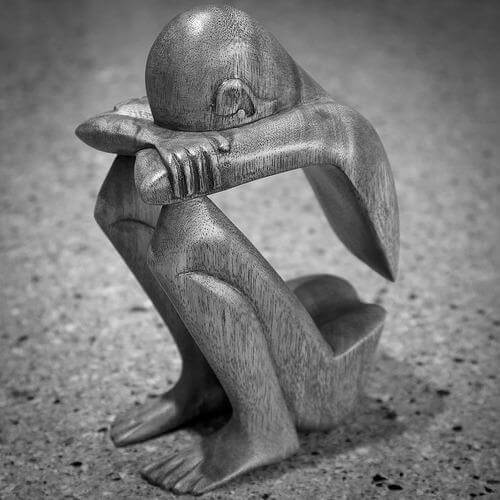Sometimes I wonder how it’s possible for some people to have the ability not to listen to some critical comments, can they be deaf, when do they think it’s appropriate?What makes them so invulnerable?
The difference between resilient or invulnerable and critically sensitive people lies in reflection, while people sensitive to criticism generate a self-speech dominated by negative thoughts, which change mood, behavior and decrease the stability of self-esteem, people ?Invulnerable, rationalize criticism and refute it when it is incorrect or irrelevant, let’s look at an example:
- Pedro and Carlos meet in a nightclub and want to meet a woman.
- Pedro is more shy than Carlos and.
- Although they both want to talk and dance with one of the women of the disco.
- Pedro is too afraid to accept no for an answer.
- ? When this happened to Carlos.
- In less than 10 minutes.
- He was already looking at another woman.
- So Carlos knew more women than Pedro.
We can also see it in another example: María lives in Madrid and wants to open a business to achieve her independence. Laura, who lives in Barcelona, also makes the same decision as María: suppose that although they do not know each other and we have no contact, the commercial conditions are the same for both, when María decided to tell her boyfriend and her friends, she heard many criticism about the idea, then he considered it a failure and, without even trying, decided not to open the same thing happened to Laura, but she continued with her idea, modifying it a little, a few months later Laura managed to open the business, while Maria still did not know what to do.
What can we observe here? Fear of criticism and rejection, or ridicule, is a matter of reflection, Carlos and Laura did not destabilize because they did not interpret criticism as a personal failure, but as an opportunity to try something they could improve on. are synonymous with rejection, as was the case with Peter and Mary.
Criticism can only offend us if you give them that power, if someone unfairly criticizes us, nothing will happen that we don’t want, we can’t feel bad about someone else’s bad comments, because the mistake wasn’t ours, but the person’s. who criticized him, but the opposite can also happen. That is, someone can correctly criticize us for an inappropriate action or attitude that we have done, but that should not be cause for sadness, bitterness or anguish, criticism can also be constructive, so we must accept it, looking for other alternatives. or strategies to solve the problem. Criticism may be correct or incorrect, but it’s our thinking that ultimately makes them harmful.
Most of the time no one receives criticism in a pleasant way, on the contrary, we adopt a behavior that makes us face criticism, we tend to get defensive and we try to dismantle the arguments of others, raising strong language barriers, mostly ambiguous. , it is very important to try to put yourself in the shoes of the other, the one who has criticized, that is, have a little empathy and take an assertive stance, if we put ourselves in the place of another person, taking into account the circumstances and their world view, we may be able to better understand their attitude.
Affirming ourselves in the face of criticism makes us flexible and open to dialogue, and we are willing to listen to others. An assertive attitude is an attitude in which we do not set the tone and in which, when we do not understand certain data, or we think that they do not give us the complete and necessary information so that we can understand what they are saying, we ask, thus facilitating the understanding of both parties.
I mean the search for real areas of what we are told, it is almost always possible to find in the opposite arguments a little truth, but there are also semi-correct criticisms, if we find a truth it is good to recognize it for the sender, but if we show that silence is no better than lying, the coincidence shows that one takes into account what the other says and avoids , in most cases, the discussion laden with criticism and defenses.
When we express what we think it is very important to take into account certain problems, such as not destroying each other, for this we can try not to use ambiguous language and focus on the facts that have occurred, avoiding the labels and admitting The possibility that we have made wrong are also two important options, but above all, to think that we are not only made of the mistakes we have made.
Image Credits: Diane Hammond and Katiew

